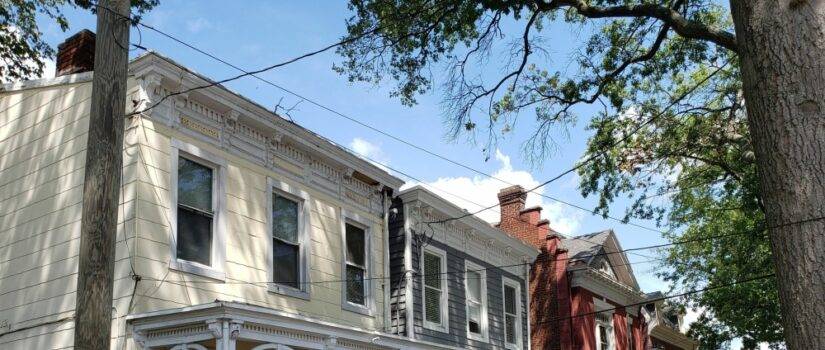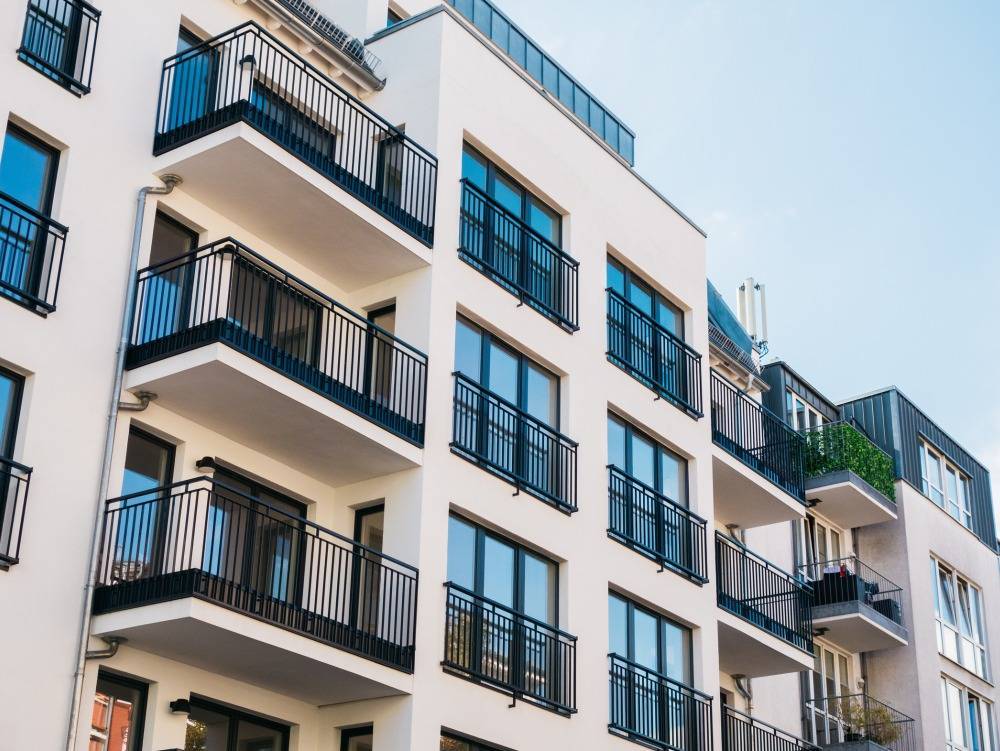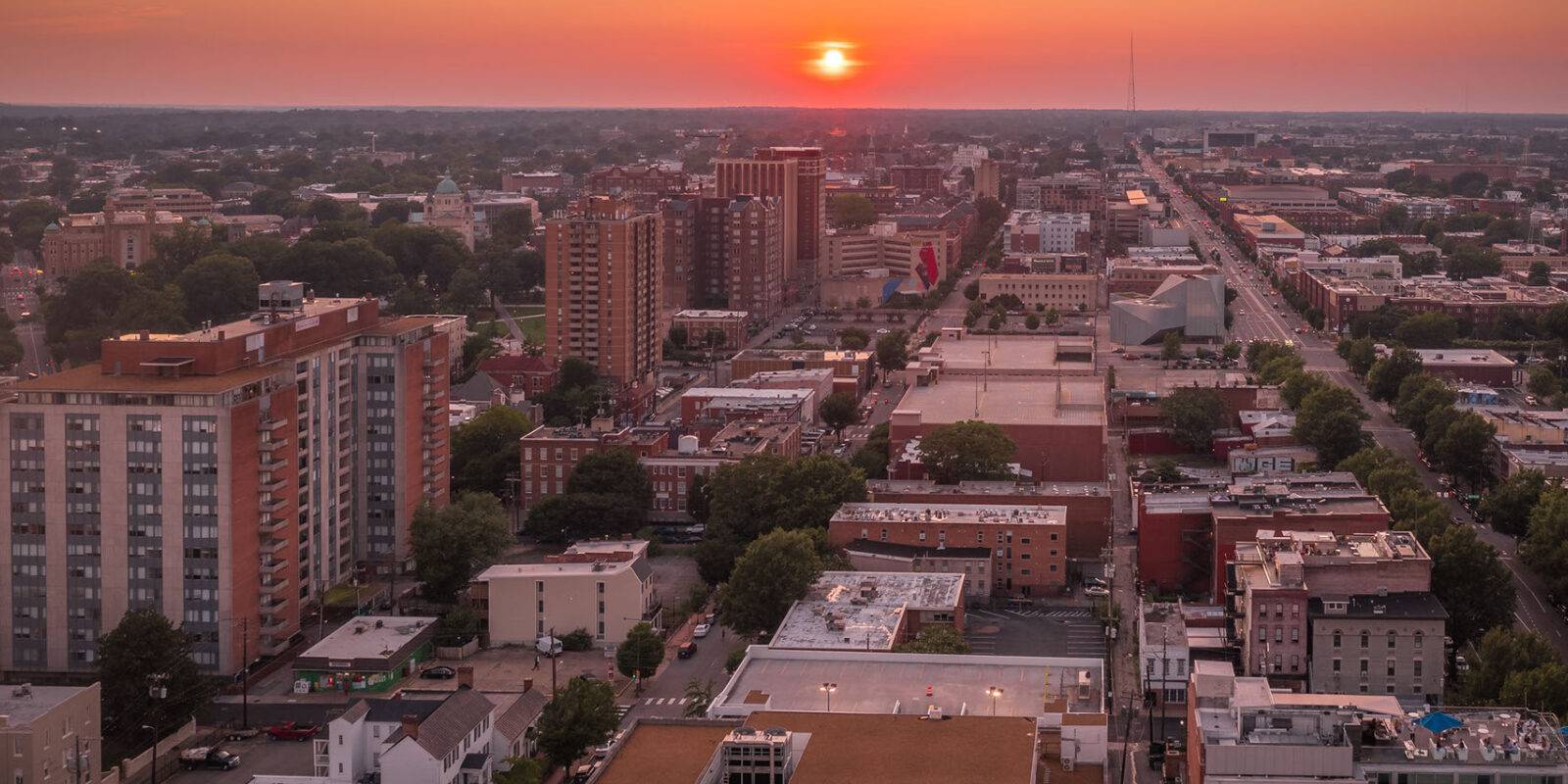Pros and Cons of Buying and Renting in the Richmond Market

Richmond, Virginia, is a beautiful historic city with a diverse and thriving housing market. Like any housing market, there are pros and cons to both renting and buying a home in this area, and we’ll explore some of the advantages and disadvantages of each.
The Downside of Buying or Renting in Richmond
Cons of Renting in the Richmond Market:
- Limited Choices: Richmond has a crop of old, historic buildings and a crop of newer construction, but very little in between. Because of this, finding the characteristics or amenities you want in a rental may be difficult.
- Rising Market: Property values in the Richmond market continue to rise and rentals are in high demand, but in short supply. This means waitlists for available units are becoming common and monthly costs for rentals are steadily increasing.
- No Tax Benefits: As in any rental market, renters do not qualify for any tax benefits associated with owning a home, such as deductions for mortgage interest or property taxes.
Cons of Buying in the Richmond Market:
- Competition: Richmond’s growing population and limited availability of homes means you’ll need the help of a Realtor with a keen eye and a great network to help you act quickly.
- Maintenance and Repairs: Historic homes in the Richmond market are the norm, meaning they sometimes need a bit more TLC than most. Buyers are responsible for maintaining and repairing the unique needs of these houses and have to budget for common repairs, such as a leaky roof or a broken water heater.
- Less Flexibility: Homeowners have less flexibility than renters in Richmond. Buying and selling a home takes time, and it can be tough to ensure that your move-in and move-out dates line up in this competitive market.

The Upside of Buying or Renting in Richmond
Pros of Renting in Richmond:
- Flexibility: One of the biggest advantages of renting is the flexibility it offers. Renters in the Richmond market can try a 1910 row house in a quiet neighborhood one year, and a brand new flat in a lively location like Scott’s Addition the next — without the hassle and cost of selling a home. This is especially beneficial for those who aren’t sure if they want to settle down in one place or if they are only planning to stay in Richmond for a short time.
- No Maintenance or Repair Costs: Another benefit of renting is that tenants are not responsible for maintenance or repairs. This means that renters do not have to worry about fixing leaky faucets, replacing a broken appliance, or maintaining the roof. This can be a huge help, particularly in some of Richmond’s older properties.
- Lower Upfront Costs: Renting a home in Richmond, like in any market, typically requires a lower upfront cost than buying a home. Renters do not have to worry about a down payment, closing costs, or other fees associated with a purchase.
Pros of Buying in Richmond:
- Building Equity: One of the biggest advantages of buying a home in Richmond is building equity in the property. As the homeowner pays down the mortgage, they own a greater percentage of the property. An investment in real estate is still the number one way to go to build long-term wealth, especially with increasing home values!
- Tax Benefits: Homeowners can not only take advantage of tax benefits, such as deductions for mortgage interest and property taxes, but they can also benefit from other tax programs specific to Richmond properties. Some of those programs include historic rehabilitation tax credits administered through the Virginia Department of Historic Resources and tax incentives to purchase a home in areas of economic opportunity.
- Freedom to Modify: Let your personality shine! Homeowners in the Richmond market have the freedom to modify their living space to fit their needs and preferences. They can paint the walls, remodel the kitchen, or make any other modifications without a landlord’s approval. While some historic neighborhoods have a few restrictions when it comes to major changes, most areas celebrate variety and highlight exterior eccentricities like murals, sculpture, and more.

How Can You Decide?
The decision to rent or buy in the Richmond market depends on a variety of personal factors, including financial stability, lifestyle, and long-term goals. For example, renting may be a good option for those who are not sure if they want to settle down in one place or for those who want to save money in the short term. Buying may be a good option for those who want to build equity, customize a home to fit your needs and personality, and invest in long-term wealth.
It’s important to consider the overall cost of living in an area when deciding whether to rent or buy. According to Numbeo, the cost of living in Richmond is lower than the national average. This means that residents in the Richmond market may be able to stretch their dollar further than in other cities.
However, as the city’s population continues to expand, the rental market in Richmond is becoming more competitive for residents because available units are few and are in high demand. According to RentCafe, the average rent for an apartment in Richmond is $1,455 per month, as of January 2023. This is an increase of 11% from the previous year. This increase in rental prices may also make it more difficult for renters to find housing that fits their budget.

Another factor to consider is the current state of the housing market in Richmond. According to Zillow, the median home value in Richmond is $283,518, as of February 2023. While this is an increase of 15.3% from the previous year, average mortgage payments still tend to be lower per square foot than rental rates.
When considering the pros and cons of renting vs. buying in Richmond, it’s important to consider in each how the current state of the housing market and your personal financial situation work together. If you have a stable income and plan to stay in Richmond for the long term, buying a home may be the best option for you. However, if you’re unsure about your long-term plans, want to save money in the short term, or get to know the personalities of area neighborhoods before committing to a purchase, then renting may be a better choice.
In conclusion, there are pros and cons to both renting and buying in the Richmond, Virginia housing market. Renting offers the chance to “try on” different structures and neighborhoods with lower upfront costs, while buying offers the opportunity to make modifications, build equity, and take advantage of tax benefits. Ultimately, the decision to rent or buy should be based on your personal financial situation and long-term goals.







